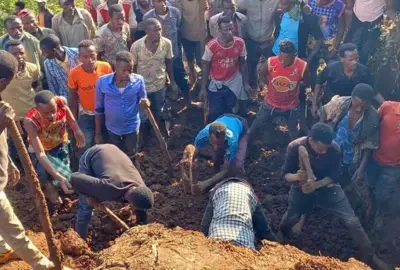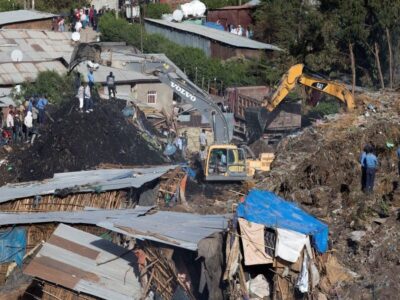Women and girls living in cobalt-mining communities in the Democratic Republic of Congo (DRC) are reporting a “staggering” rise in serious reproductive health issues.
This includes miscarriages and birth defects, according to an investigation published by the UK-based human rights group Rights & Accountability in Development (Raid) and the Kinshasa-based NGO Afrewatch.
The report released this week showed that women and girls living around cobalt mines reported experiencing irregular menstruations, urogenital infections, vaginal mycoses and warts.
According to the report, “a paediatrician, who has been recording patients’ data since 2016, explained that the rates of genital infections and skin pathologies among female patients had exploded.
She believed this was because these populations were the primary users of ‘unclean water’, making them particularly vulnerable to diseases.”
Read more: Govt, World Bank move to remove bottlenecks against energy transition programmes
In total, 144 people living in 25 communities near five industrial cobalt mines were interviewed as part of the study.
More than half of all interviewees (56 percent), raised concerns about their own reproductive health or that of family members.
Anaïs Tobalagba, a legal and policy researcher at Raid and the report’s lead researcher, told the Guardian: “One of the most striking findings that we discovered was the differentiated impact on women.
“We knew there had been research linking cobalt mining to reproductive health issues. But we did not know the scope of it until we began these interviews.”
Anneke Van Woudenberg, the Executive Director of Raid, said: “I have worked in the DRC for 25 years and men are often reluctant to discuss female health issues. But men were also saying, ‘something is going wrong with our women’.”
Women are more likely to come in to daily contact with contaminated water than men, said Van Woudenberg.
“They are not drinking the water but they bathe in it, wash their clothes, household cleaning – all things women are doing. And medical experts have told us that that when the pH level of water is lower, gynaecological issues are more likely.”
Raid and Afrewatch also asked the University of Lubumbashi’s toxicology and environment unit to examine water samples taken from the Dipeta River; the Katapula, Kalenge and Dilala-UCK rivers, and Lake Kando – the five water bodies identified by local residents as being problematic.
Cobalt is used to make batteries for a number of household items, including electric vehicles.
Transition to green energy had driven increased production in cobalt mines over the past decade.
WARNING! All rights reserved. This material, and other digital content on this website, may not be reproduced, published, broadcast, rewritten or redistributed in whole or in part without prior express permission from ZAMBIA MONITOR.













Comments